Is SMS or RCS Better for Messaging?
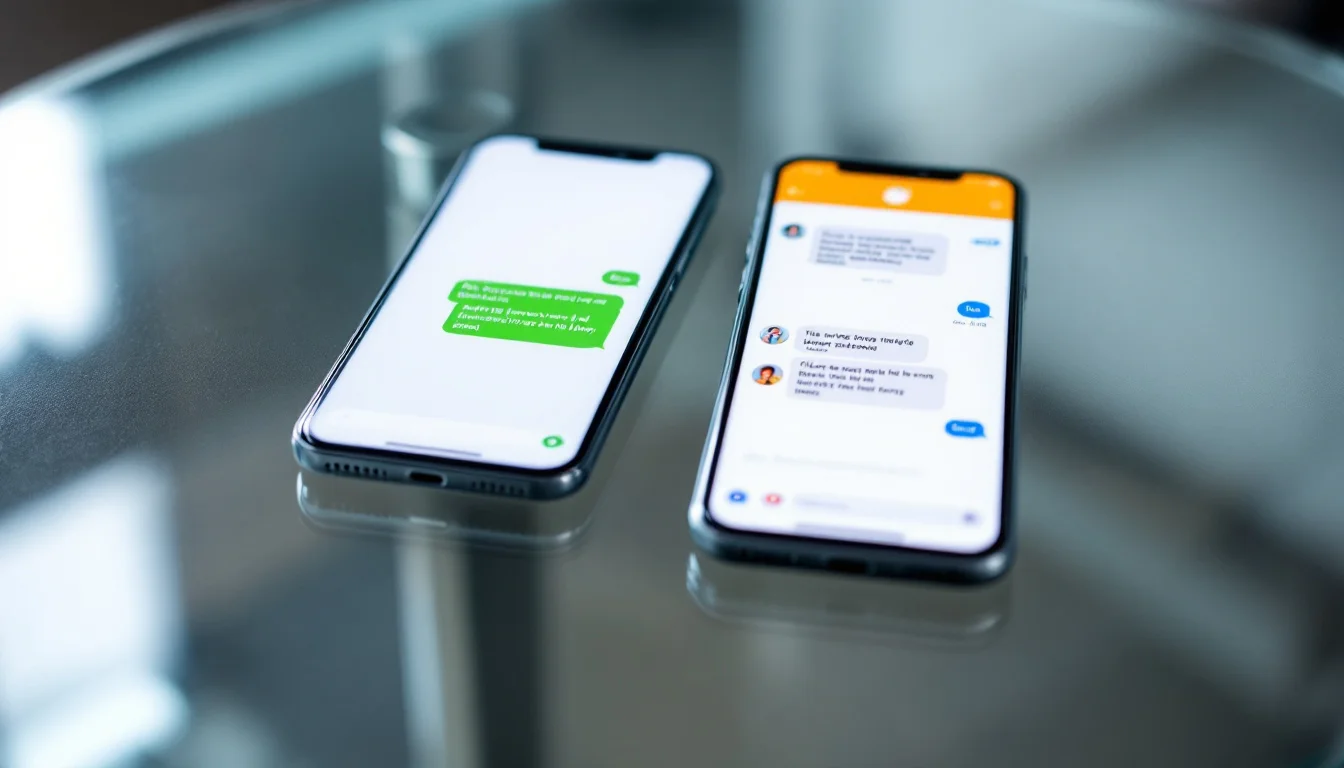
At Drop Cowboy, we’re often asked about the differences between SMS and RCS messaging.
As businesses seek to enhance their communication strategies, understanding these two technologies becomes essential. SMS has been a reliable staple for decades, while RCS emerges as a feature-rich alternative.
In this post, we’ll explore SMS vs RCS, comparing their capabilities, adoption rates, and potential impact on business messaging.
What Is SMS and Why Does It Matter?
The Birth of SMS
SMS, or Short Message Service, transformed mobile communication when it debuted in the 1990s. This text-based messaging system quickly became a global standard, enabling people to send brief messages (up to 160 characters) between mobile devices.
SMS: A Communication Powerhouse
Despite newer messaging technologies, SMS maintains its dominance in the communication landscape. GSMA Intelligence reports that over 5 billion people worldwide use SMS, solidifying its position as one of the most widely adopted communication tools. This ubiquity explains why businesses continue to rely on SMS for critical communications.
Strengths Born from Limitations
While SMS has constraints (character count restrictions and lack of rich media support), these limitations have evolved into strengths in certain contexts. The brevity of SMS messages compels businesses to craft concise, direct communications that often yield higher engagement rates. A Mobilesquared study found that SMS messages boast an average open rate of 98%, far outperforming email and other digital channels.
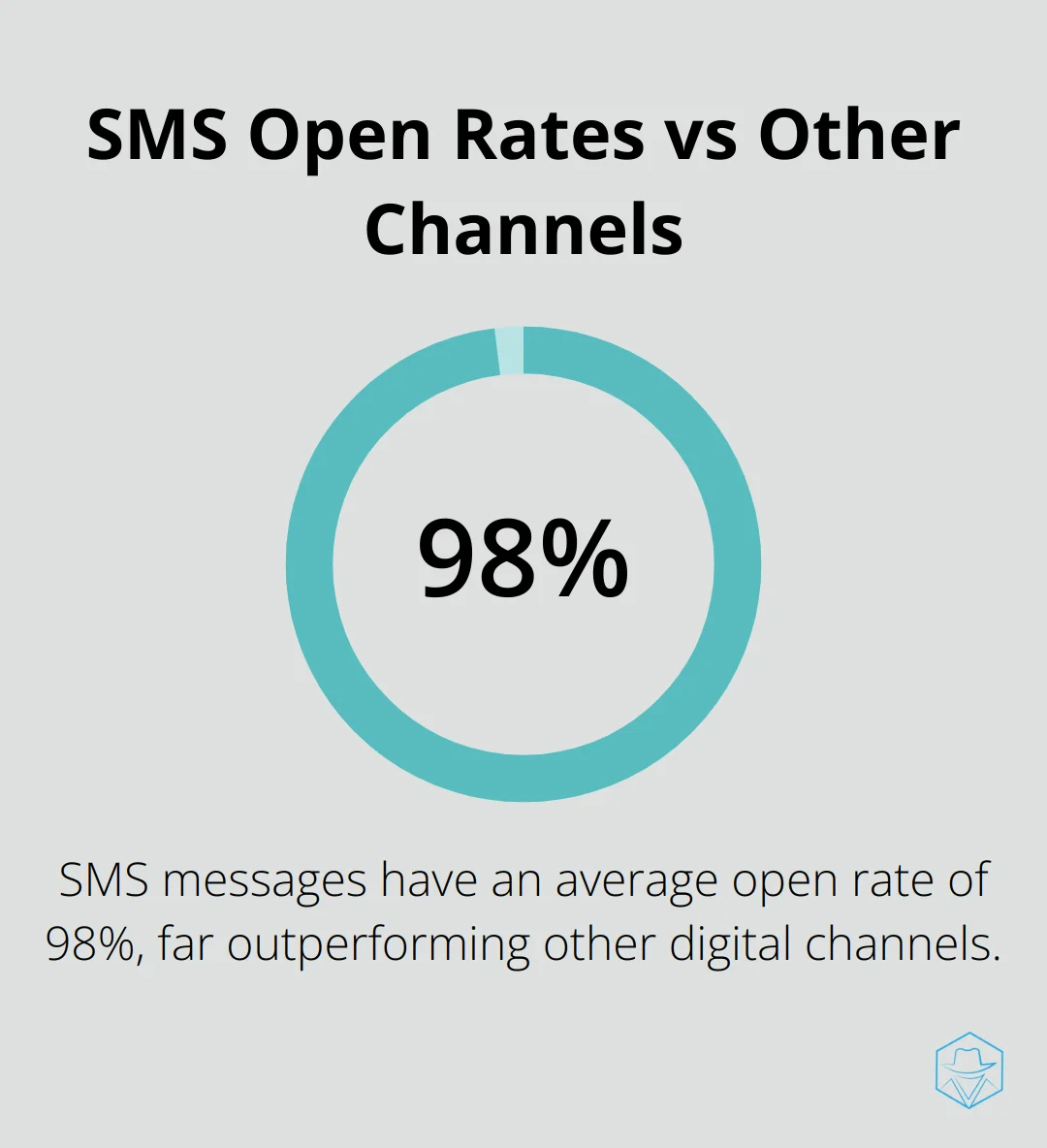
Evolving Business Use of SMS
Businesses are shifting their SMS usage strategies. While it remains popular for transactional messages (appointment reminders and delivery notifications), there’s a growing trend towards using SMS for marketing and customer engagement. Juniper Research predicts that by 2025, businesses will send 3.5 trillion SMS messages annually, underscoring the continued relevance of this technology.
SMS in the RCS Era
As Rich Communication Services (RCS) gains popularity, some question the future of SMS. However, these technologies will likely coexist for the foreseeable future. SMS’s universal compatibility and reliability make it indispensable, especially in areas with limited data connectivity. Many businesses use SMS as a fallback option when RCS messages can’t be delivered, ensuring maximum reach for their communications.
The enduring power of SMS sets the stage for our next discussion: the rise of RCS and its potential to revolutionize messaging technology.
What Is RCS and How Does It Transform Messaging?
The Evolution of Mobile Messaging
Rich Communication Services (RCS) represents the next leap in mobile messaging technology. A group of industry promoters conceived RCS in 2007, and the GSM Association later standardized it. This new protocol aims to modernize messaging by offering a more feature-rich experience than traditional SMS.
Advanced Features of RCS
RCS surpasses the limitations of text-only messages with a suite of advanced capabilities:
- High-resolution photo and video sharing
- Enhanced group chat functionality
- Typing indicators
- Branded messaging with verified sender information
These features increase trust and engagement for businesses using RCS. The protocol’s support for rich media and interactivity allows companies to create more compelling campaigns. Businesses can now include carousels, suggested replies, and actionable buttons within their messages.
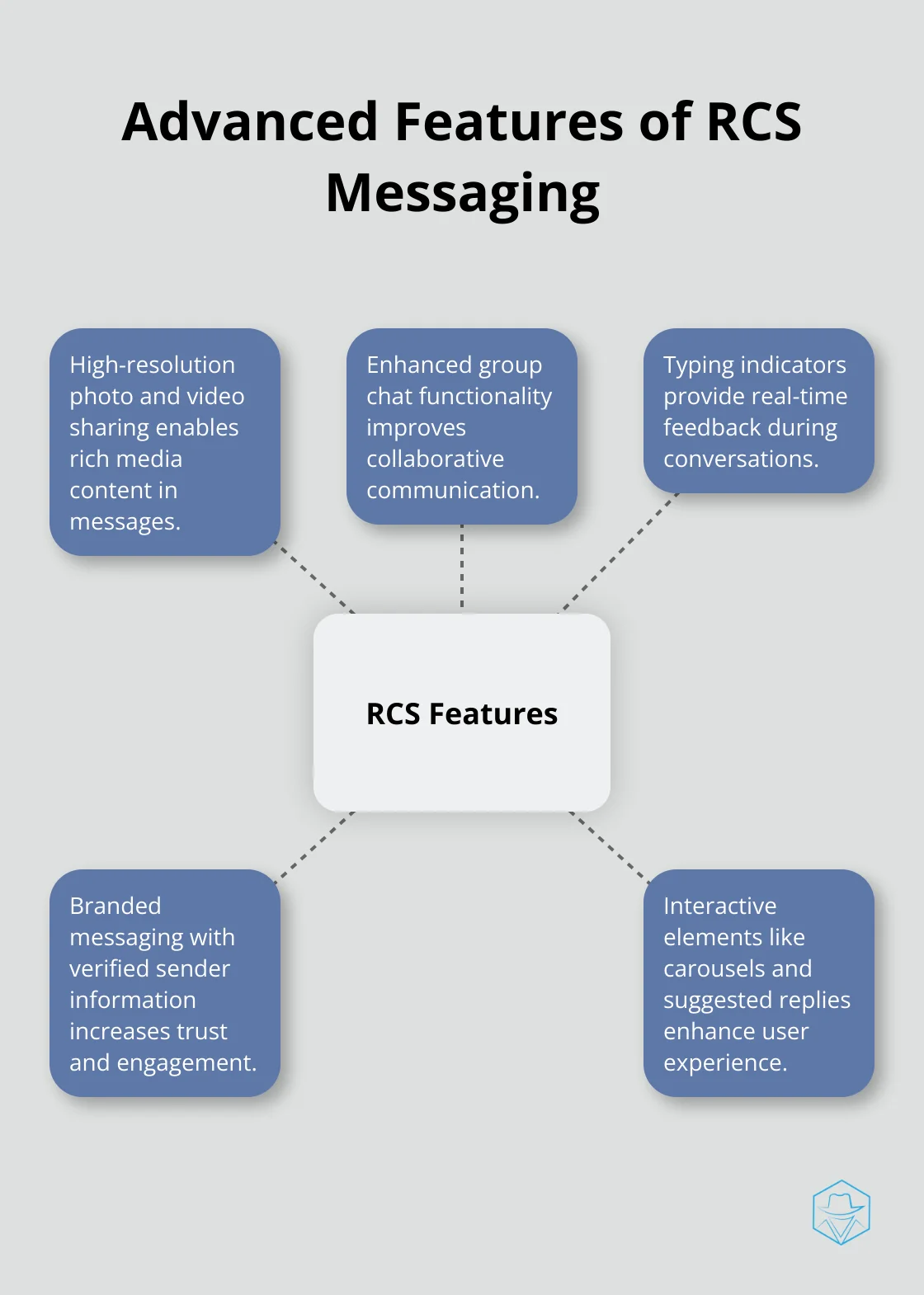
A study by Mobilesquared highlights the effectiveness of RCS, showing engagement rates up to 14 times higher than traditional SMS campaigns.
Growing Adoption and Industry Support
RCS adoption continues to climb, with major carriers and smartphone manufacturers backing the technology. GSMA reports that over 2 billion users worldwide had access to RCS messaging as of 2025. This number will likely see a significant boost following Apple’s announcement to support RCS on iOS devices starting in 2024.
Google has played a pivotal role in driving RCS adoption. The tech giant has integrated RCS into its Messages app and collaborated with carriers to enable RCS by default on Android devices. This push has accelerated adoption rates, with Juniper Research projecting that RCS will handle 420 billion messages annually by 2026.
Transforming Business Communication
For businesses, RCS opens new avenues in customer engagement. The ability to send rich media content and interactive messages enables more effective communication strategies. A Vodafone case study revealed that RCS campaigns achieved click-through rates of up to 25% (significantly higher than traditional SMS marketing).
RCS technology empowers businesses to create dynamic, interactive campaigns that drive higher engagement and conversion rates. Features like voice personalization and efficient global message delivery further enhance the potential of RCS for business communication.
As RCS gains momentum, it’s clear that it represents the future of mobile messaging. However, SMS still plays a vital role in communication strategies, especially in areas where RCS adoption lags. The next section will compare these two technologies, helping businesses understand how to leverage both SMS and RCS for maximum messaging effectiveness.
SMS vs RCS: A Comparative Analysis for Messaging Effectiveness
Delivery and Read Receipts
SMS offers near-universal delivery rates, with messages typically reaching recipients within seconds. However, SMS lacks built-in read receipts, which leaves senders uncertain about message engagement.
RCS provides detailed delivery and read receipts. This feature allows businesses to track when messages are delivered and opened, providing valuable insights into campaign performance. A study by Mobilesquared reveals that RCS messages have an average read rate of 74%, which significantly outperforms email’s 20% open rate.
Rich Media and Interactivity
SMS limits communication to text, while RCS excels in rich media support. Businesses can include high-resolution images, videos, and interactive elements (such as buttons and carousels) in their messages. This capability leads to impressive results: a Vodafone case study found that RCS campaigns achieved click-through rates up to 25%, far surpassing traditional SMS marketing.
SMS’s simplicity can be an advantage in certain scenarios. Its text-only format ensures messages are accessible on all devices, including older models that may not support RCS.
Business Messaging Capabilities
RCS offers a suite of features tailored for business messaging. Verified sender information builds trust, while suggested replies and action buttons streamline customer interactions. These features prove effective: GSMA reports that businesses using RCS see up to 140% higher conversion rates compared to SMS campaigns.
SMS, while more limited, remains a powerhouse for time-sensitive communications. Its high open rates (98% according to Mobilesquared) make it ideal for urgent notifications or two-factor authentication.
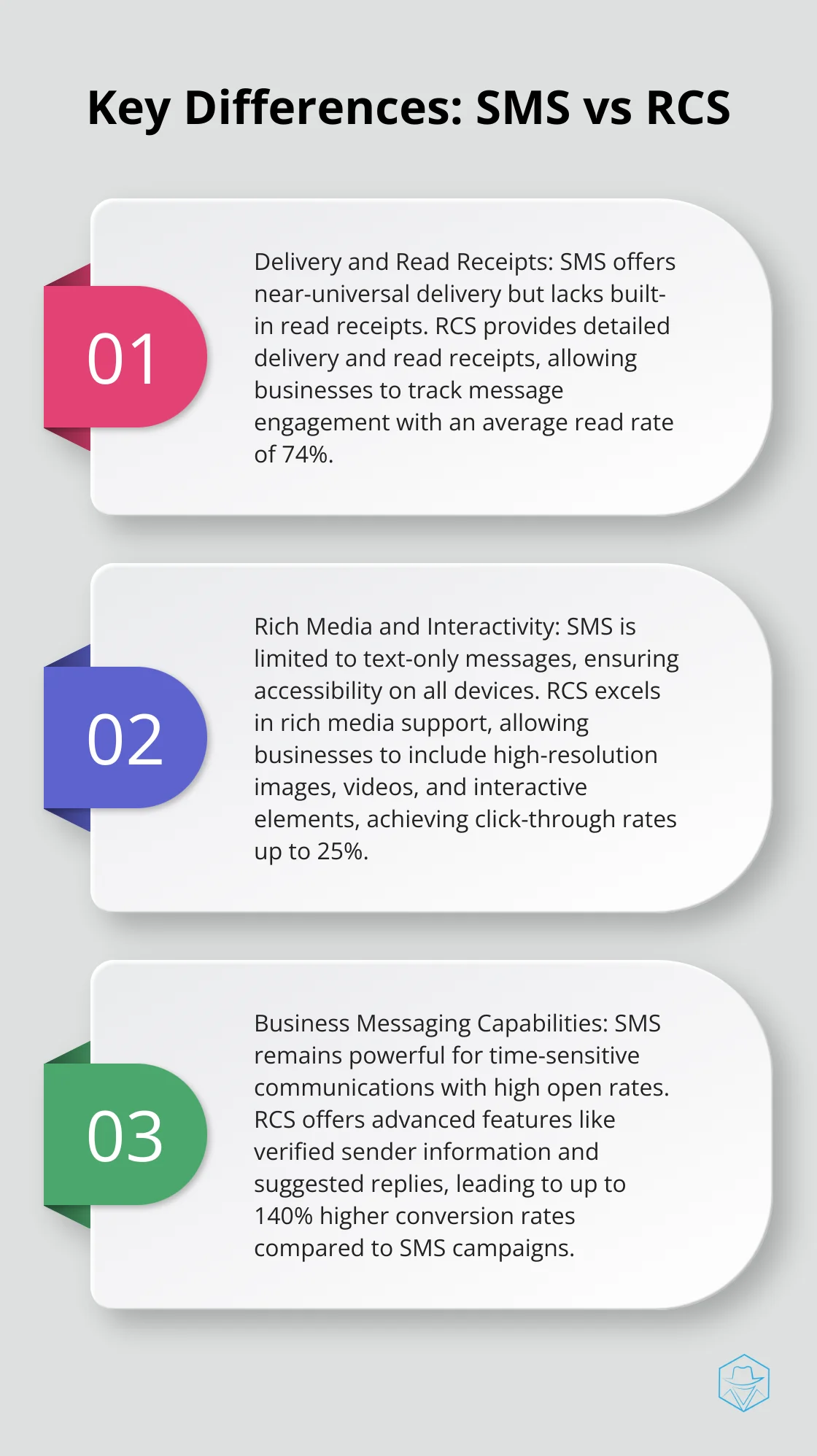
Cross-Platform Compatibility
SMS’s universal compatibility remains unmatched. It works on virtually every mobile device, regardless of operating system or network.
RCS, while growing rapidly, still faces compatibility challenges. Its availability depends on device, carrier, and app support. However, Apple’s announcement to support RCS on iOS devices from 2024 will likely boost cross-platform compatibility significantly.
Security and Privacy Considerations
RCS offers enhanced security features, including end-to-end encryption for person-to-person messages. This added layer of protection proves particularly valuable for sensitive communications.
SMS lacks built-in encryption, which makes it less suitable for sharing confidential information. However, its simplicity and universal compatibility mean it remains a go-to choice for many types of business communications.
Final Thoughts
SMS and RCS both play vital roles in business communication strategies. SMS excels in universal reach and simplicity, while RCS offers rich media capabilities and interactive features. The future will likely see businesses adopt a hybrid approach, using SMS for urgent notifications and RCS for engaging campaigns.
We recommend businesses assess their audience’s device capabilities and preferences when optimizing messaging strategies. Implement RCS where possible, but maintain SMS as a reliable fallback option to ensure maximum reach. Consider using platforms like Drop Cowboy that offer integrated solutions for both SMS and RCS messaging.
As messaging technologies evolve, businesses must stay informed and adaptable to maintain effective customer communication. Understanding the strengths of SMS vs RCS will help craft messaging strategies that are current and future-proof, ensuring impactful connections with audiences.
blog-dropcowboy-com
Related posts

August 22, 2025
Revolutionize Your Outreach with AI Voice Synthesis Technology
Transform outreach efforts with AI voice synthesis. Explore practical tips and trends, boosting engagement with innovative technology solutions.
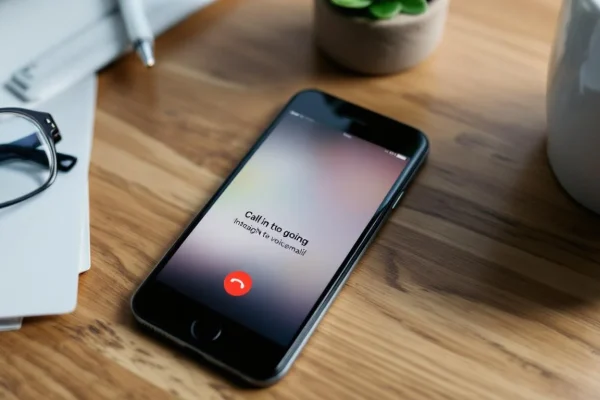
August 4, 2025
Phone goes straight to voicemail
Solve why your phone goes straight to voicemail, explore common reasons and find out how to fix this annoying issue today with practical tips.

June 2, 2025
How to Optimize Call Centers with the Right CRM
Optimize call centers efficiently using the right CRM for call center. Enhance customer experience and boost productivity with tailored solutions.
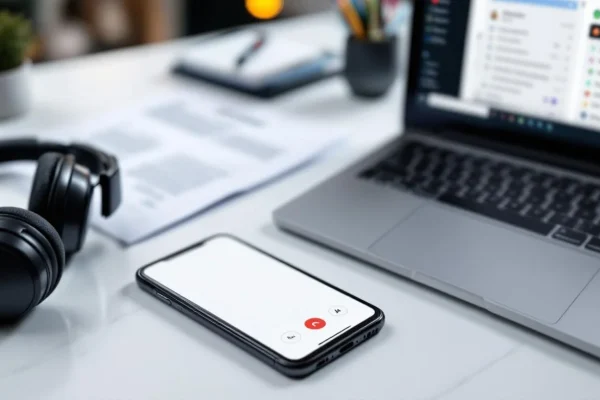
June 16, 2025
Kixie Dialer: Supercharge Your Sales Calls
Boost sales calls with Kixie Dialer! Discover proven tips and tools for enhancing efficiency and closing more deals effectively.

May 8, 2025
Marketing Automation for Real Estate: Boost Sales
Boost real estate sales by exploring top marketing automation techniques. Discover the best marketing automation certification for growth.
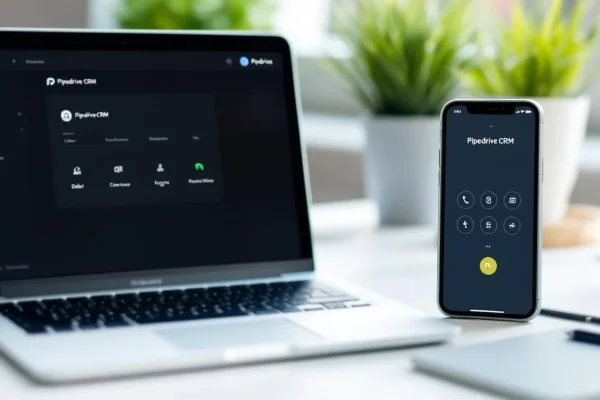
June 23, 2025
Pipedrive Dialer: Integrate Calling with Your CRM
Integrate Pipedrive Dialer with your CRM to optimize sales calls, increase productivity, and streamline communication effectively.